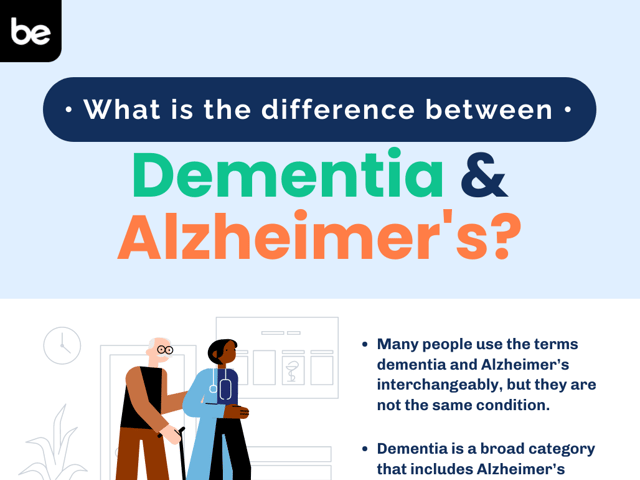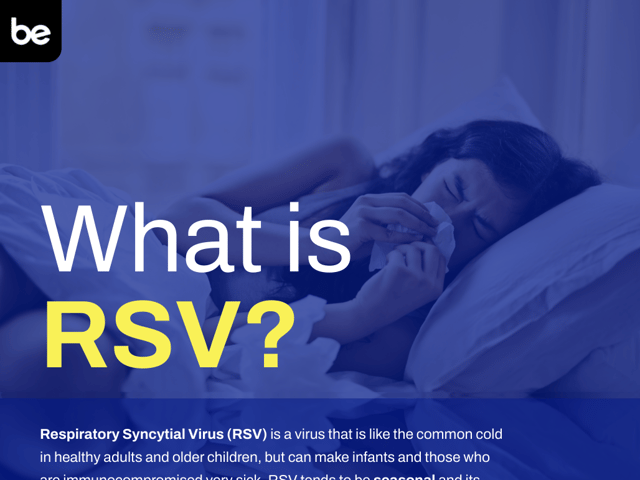
What Is the Difference between Dementia and Alzheimer’s?
Many people use the terms dementia and Alzheimer’s interchangeably, but they are not the same condition. Dementia is a broad category that includes Alzheimer’s disease but also includes other conditions.
Dementia
Dementia is a general term that refers to the loss of cognitive functioning such as memory, language, problem solving, and reasoning, and the loss of behavioral and social skills to the point of interfering with the person’s life. Alzheimer’s disease makes up 60-80% of the cases of dementia. Other causes include Lewy body dementia, vascular dementia, frontotemporal dementia, Parkinson’s disease, and Huntington’s disease. Some types of dementia are reversible depending on their cause, but Alzheimer’s is not.
Alzheimer’s Disease
Alzheimer’s disease is a progressive brain disease in which certain areas of the brain are damaged and can no longer function. In the early stages, signs and symptoms include difficulty with short-term memory and word finding, vision and spatial issues, and impaired reasoning. As it progresses, signs and symptoms include worsening memory loss, wandering and getting lost, hallucinations, delusions, and impulsive behavior. In severe Alzheimer’s, people are unable to take care of themselves, are unable to communicate, and depend entirely on others.
General Dementia Symptoms
Signs and symptoms that are more closely related to other forms of dementia include slowed thinking, loss of organization and focus, abnormal movements, and altered personality, behavior, and language.
While Alzheimer’s disease makes up the majority of the cases of dementia, not all patients with dementia have Alzheimer’s. For more information on Alzeheimer’s and other important nursing concepts, or to test your knowledge, check out our NCLEX-PN practice tests, study guides, and flashcards.
Keep Reading

National Council Licensure Examination-Practical Nurse Blog
How Long Should I Study for the NCLEX-PN?
For aspiring nurses, the NCLEX-PN is a critical hurdle on the path to b…

National Council Licensure Examination-Practical Nurse Blog
How to Become an LPN
Would you like to average $30 dollars per hour in a rewarding full-time…

National Council Licensure Examination-Practical Nurse Blog
What is RSV?
Respiratory Syncytial Virus (RSV) is a virus that is like the common co…